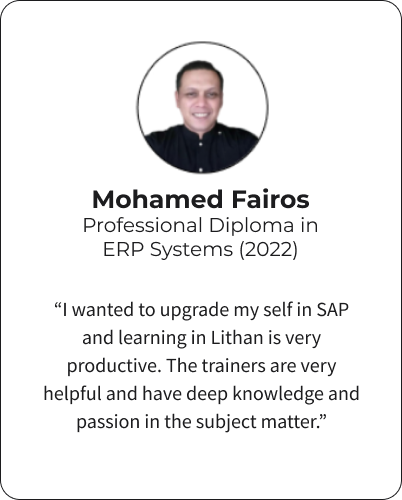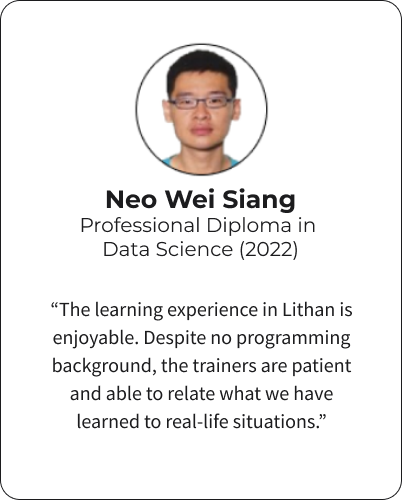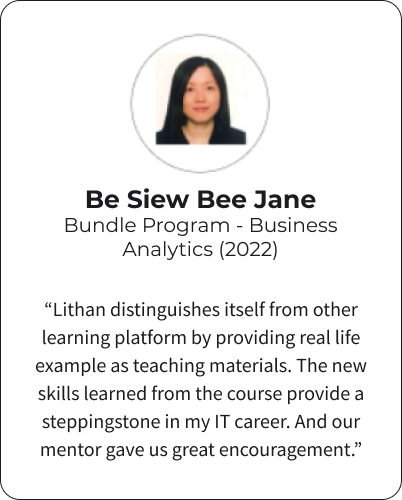Highly Affordable Master in Cloud Administration
- Homepage
- Highly Affordable Master in Cloud Ad ...


Why pursue a Master in Computer Science?

Academic qualifications still matter
A quick scan of popular job portals shows that the prerequisite for many PME roles is minimally a bachelor’s or master’s degree qualification. Master’s holders certainly have the edge.

Higher degree graduates are 100 times more rare
33% of locals are bachelor’s degree holders whereas only 0.3% are graduates of higher degrees*, resulting in master’s degree graduates having an academic advantage over most workplace peers and job applicants.

The IT & digital sector is booming post Covid
² ⁴Source: Report from Amazon Web Services (AWS)
³IDC
Why pursue a Master in Computer Science?

Academic qualifications still matter
A quick scan of popular job portals shows that the prerequisite for many PME roles is minimally a bachelor’s or master’s degree qualification. Master’s holders certainly have the edge.

Higher degree graduates are 100 times more rare
33% of locals are bachelor’s degree holders whereas only 0.3% are graduates of higher degrees*, resulting in master’s degree graduates having an academic advantage over most workplace peers and job applicants.

The IT & digital sector is booming post Covid
² ⁴Source: Report from Amazon Web Services (AWS)
³IDC
Why choose us

High Affordability
Enjoy up to 95% funding on SCTP courses and offset unfunded fees by SkillsFuture Credit and PSEA.

Non-invasive training schedule

More than 10 years of Job Placement Success
Why choose us
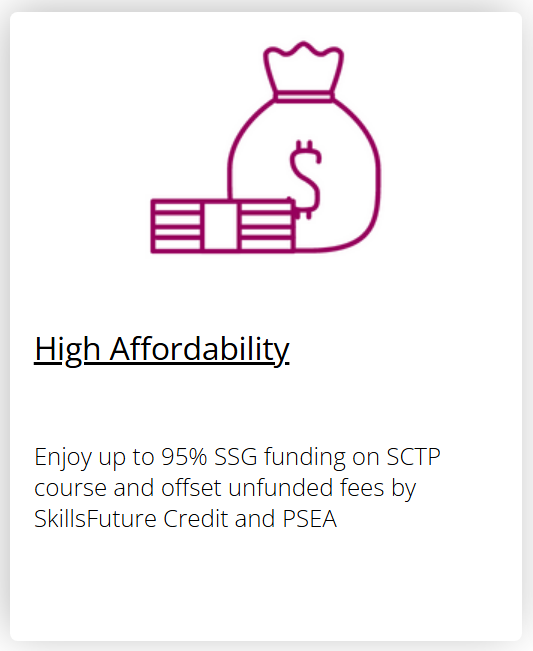
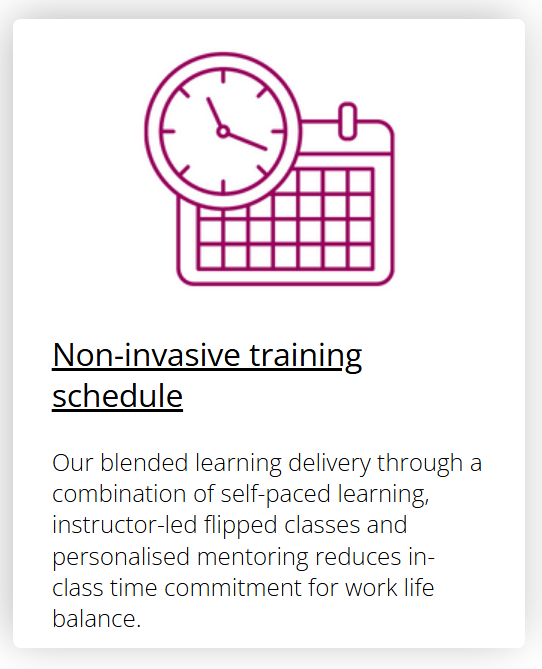
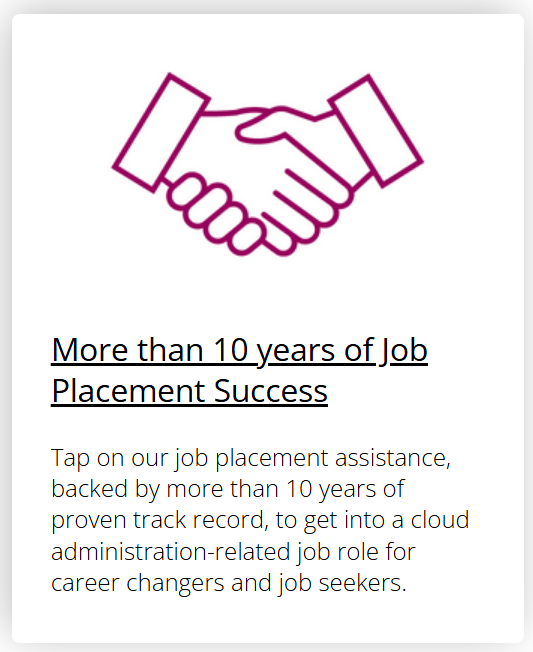
We have mapped our SCTP course and WSQ modules to the master's degree pathway. You will receive up to 95% funding for the SCTP course, and any unfunded fees can be offset by SkillsFuture Credit or PSEA to minimise any cash payment needed.
Profile | SSG Funding |
All Singapore citizens, permanent residents, and LTVP+ Holders | Up to 70% |
Singapore citizens, aged 40 and above | Up to 90% |
Singapore citizens who are jobseekers with greater needs*
only applicable for SCTP courses | Up to 95% |
- Long-term unemployed individuals (unemployed for six months or more); or
- Individuals in need of financial assistance – ComCare, Short-to-Medium Term Assistance (SMTA) recipients or Workfare Income Supplement (WIS) recipients; or
- Persons with Disabilities
Singaporean aged 25 and above will receive SkillsFuture Credits which can be used to offset course fees of eligible courses after any applicable funding.
The table below shows the different types of SkillsFuture Credits available and all of them can be used for our training programmes:
Types of SkillsFuture Credit | Amount |
Opening SkillsFuture Credit:
For all Singaporeans aged 25 years and above
Claimable for a wide range of SkillsFuture credit-eligible courses
Does not expire | $500 |
One-off SkillsFuture Top-Up: | $500 |
SkillsFuture Credit (Mid-Career): | $4,500 |
This is part of the Post-Secondary Education Scheme to help pay for the post-secondary education of Singaporeans.
It can be used for:
- Pay for your own or your siblings' approved programmes at approved institutions.
- Repay government education loans and financial schemes.
You can call 24-hour automated PSEA hotline at 6260 0777 to check your account balance and use them to offset course fees of eligible courses after any applicable funding.
Personalized, work-integrated & outcome-based learning journey to enable you to acquire work-ready skills
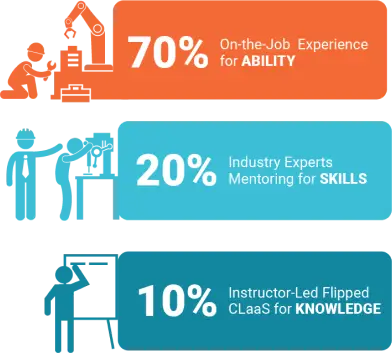
We adopt 70:20:10 work-integrated learning with industry experts mentoring on real-world projects to help learners obtained work-ready skills.
We deliver blended learning involving self-paced e-learning, live flipped classes, and project mentoring for a personalized learning journey to create work-study-life balance and learning efficiency.
Our Job Placement Assistance, with a proven track record of more than 10 years, is built upon a strong relationship with over 2,000 companies, with more than 100 of them actively hiring at any point in time.
Career Builder Workshop
1-to-1 Career Coaching
Review of Career Development Resources
Recruitment Activities & Interviews
Course Details
This is a 14-month master’s degree pathway. You will first go through a cloud administration SCTP track consisting of 6 modules, funded up to 95% and receive a (SCTP) WSQ Diploma in Infocomm Technology (Support) (Synchronous and Asynchronous E-Learning). You will then need to complete 2 non-SCTP modules, WSQ Programming Foundations and WSQ Develop Enterprise Applications. All these will lead to 2 top-up modules required to obtain your Master in Computer Science awarded by Guglielmo Marconi University, Italy.
Course Details

Prerequisite
Minimum 21 years old with a bachelor’s degree in any field from a recognized university OR
Mature candidate of 30 years and above with 8 years of relevant work experience.

Prerequisite
Minimum 21 years old with a bachelor’s degree in any field from a recognized university OR
Mature candidate of 30 years and above with 8 years of relevant work experience.
Modules Overview
(SCTP) WSQ Diploma in Infocomm Technology (Support) (Synchronous and Asynchronous E-Learning)
- SSG Module Reference No: TGS-2024043493
- Module Validity Date: 2027-01-31
- SSG Module Reference No: TGS-2024043489
- Module Validity Date: 2027-01-31
- SSG Module Reference No: TGS-2024043491
- Module Validity Date: 2027-01-31
- SSG Module Reference No: TGS-2024043490
- Module Validity Date: 2027-01-31
- SSG Module Reference No: TGS-2024043492
- Module Validity Date: 2027-01-31
- SSG Module Reference No: TGS-2024043474
- Module Validity Date: 2027-01-31
Additional Non-SCTP Modules
- SSG Module Reference No: TGS-2023019693
- Module Validity Date: 2027-01-31
- SSG Module Reference No: TGS-2023020395
- Module Validity Date: 2027-01-31
Master’s Degree Top-up Modules
Course fee and funding breakdown
Guglielmo Marconi University
Guglielmo Marconi University
About Lithan
Lithan Academy is a 4-year EduTrust certified and SkillsFuture-registered CET Centre based in Singapore.
We are also internationally accredited by Pearson UK and Scottish Qualifications Authority (SQA)
About Lithan
Accredited by the Singapore government as a CET Centre (Continuing Education and Training)
Edutrust certified by Committee for Private Education (CPE)
Internationally accredited by Pearson UK and Scottish Qualifications Authority (SQA)
Awards and Accreditations
Microsoft Global Learning Partner of the Year Award (Finalist)
Pearson’s BTEC College of the Year 2019 Award for Asia
Dun&bradstreet’s Business Eminence Award 2020
Flame Innovation Award 2019 by SkillsFuture Singapore
APAC CIO Outlook’s Top 10 Provider of Education Tech Solution

